It is no coincidence that I’ve chosen TODAY to discuss Dutch people’s fondness of Canucks. On 5 May 1945, the First Canadian Army was in large part responsible for the liberation of the Netherlands. Ask any Dutchie about Canada (especially those in their senior years) and they will surely praise the liberation efforts of the Canadian troops. The liberation came at a critical time for the Dutch people, as thousands were left starving and ill after the long ‘hunger-winter’.
The liberation of the Netherlands was no small feat, with some 8,000 Canadian soldiers losing their lives on Dutch soil. The British, American, French and Polish also assisted the liberation in various parts of the Netherlands.
[sdpl-ad3]
Dutch Canadian relationship is strong
Prior to the liberation however, Dutch Canadian relations were already strong. The Dutch royal family sought refuge in Canada during the war. In fact, we Canadians could have even claimed Princess Margriet as our own, as she was born in Ottawa during the royal exile. The Canadian government went so far as to declare the maternity suite of the Ottawa Civic hospital “extra-territorial”, allowing Princess Margriet’s citizenship to be solely Dutch. I do have to wonder if there were any other babies born that day (in the same maternity suite) who might still be able to make a claim at Dutch citizenship? 😉
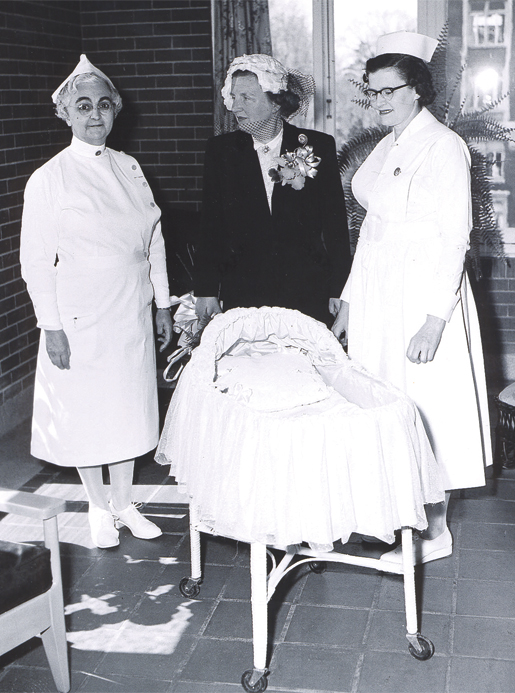
Princess Margriet – she could have been ours!!
The Dutch-Canadian love affair further intensified after the war. It seems our hunky Canadian soldiers made quite the splash amongst Dutch women! In fact, over 2,000 blushing war-brides headed to Canada after the war.
[sdpl-ad4]
When it comes time to head back to my motherland, I am sure to never be far from a Dutchie! According to the Canada 2006 Census, there were 1,035,965 Canadians of Dutch descent living in Canada. It turns out, that you just can’t escape the Dutch 😉 😉
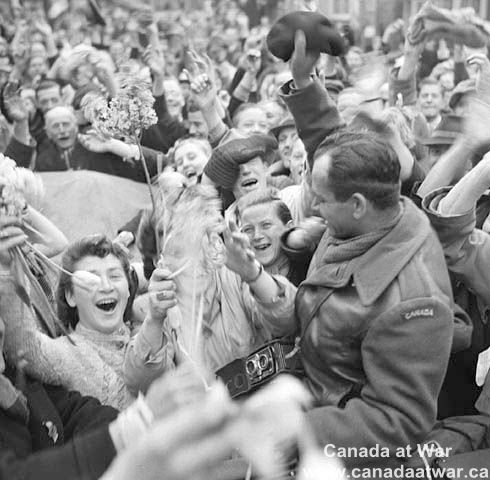
Dutch civilians celebrate the liberation of Utrecht by the Canadian Army, May 1945.
**Thanks to fan Pamela Riley and Uncle Ken for urging me to write this post.
[sdpl-ad2]
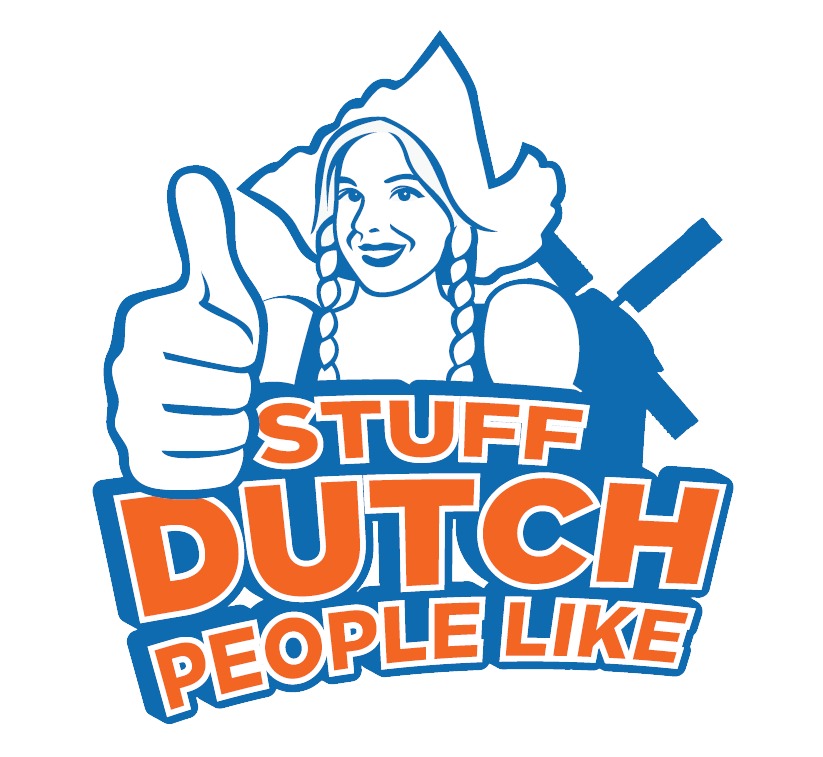


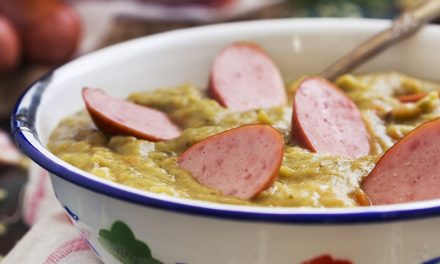

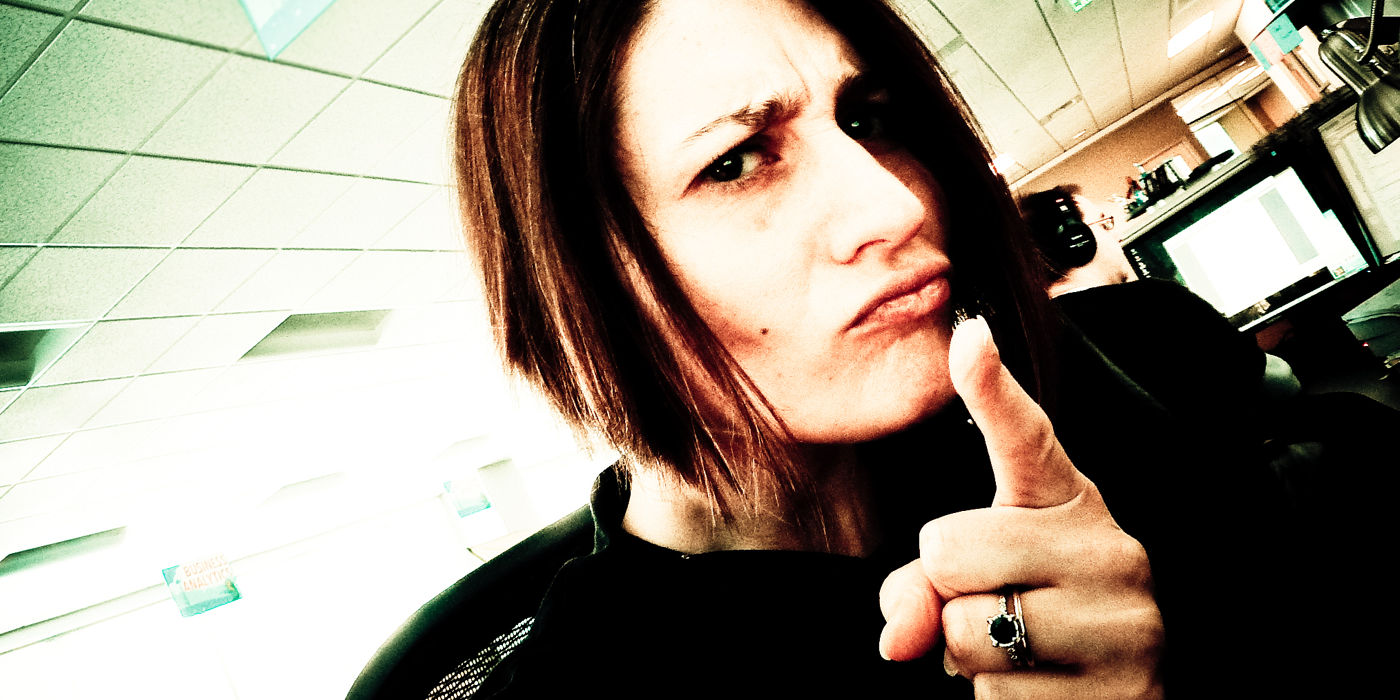
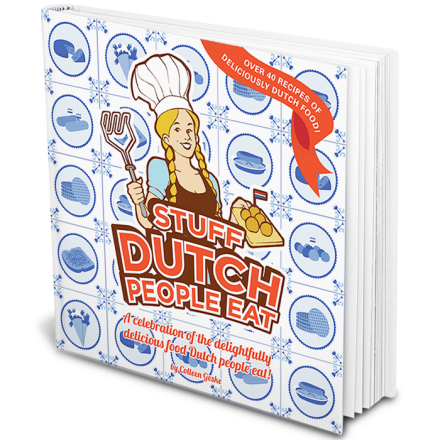
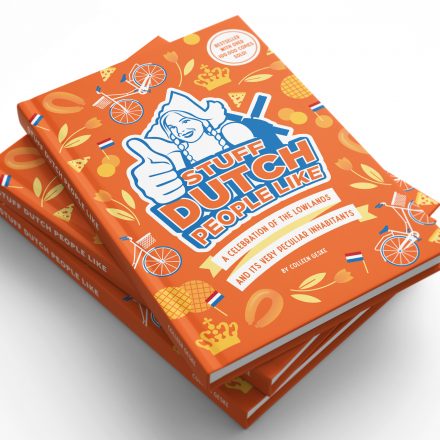
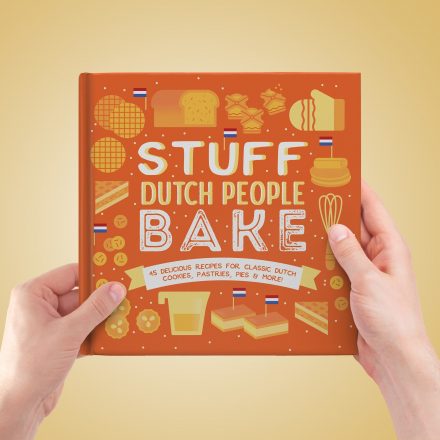
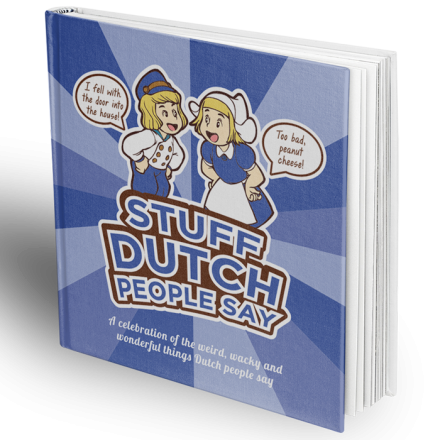
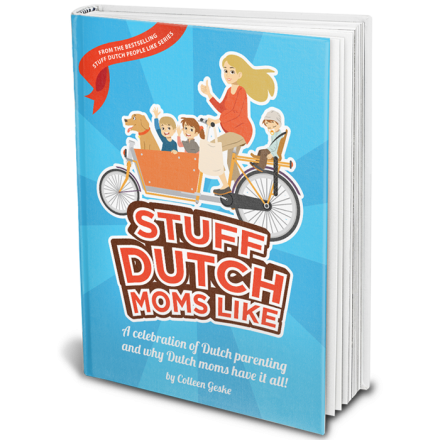
Thank you Canada! My grandparents, parents and myself are still very grateful for liberating us!
That you cannot escape the Dutch is true, but that number, 1,035,965, that is awfully precise. Too precise. But, hey, it’s “over” that number. By how many? 1, 2, 5, 10, 20, … Or 1,000,000?
It likely comes from the Census of Canada, which publishes exact figures.
Don’t forget the British forces and all the Allied forces.
My Dad served with the 51st Highland Division, 61st Anti Tank regiment throughout WW2.
He was part of the Liberating forces that served in a Holland and met my Mother in Enschede during WW2 and later married in Enschede 1946
All Solders paid a great price for our today.
come on Marco – let the Canadians bask in glory for a few minutes without having the British and American share the spotlight who otherwise get most of the credit for every good thing in WW II.
I totally agree Andy. My dad served in WWII, as a volunteer. He met my mother during WWII he was stationed for a time in Newfoundland. So many Canadians gave their lives for freedom and we will never forget. May God bless them and all who serve in freedom’s name.
Fact is that the Canadians rolled in first and did most of the fighting to liberate us, the Schelde offensive was critical. Plus, the Germans had genuine fear and respect for the Canadians. Not to disrespect all those who fought and died, but Canada was the first in Holland, and we thank them for that.
Thank you for remembering our soldiers who helped liberate Holland. It means the world to us (Canadians) that you don’t forget them.
You are so right Richard. The battle of Scheldt is mostly mentioned only with those two words. That over 6000 Canadian soldiers lost their lives in that 5 week battle is omitted most of the time. It is May 1945 and the hunger-winter of 1945 and Arnhem Market-Garden that gets the glory. Even when they had the celebration in Antwerp in November 1944 when the first supply ship arrived in the harbour of Antwerp the Canadians were not invited even as they had done most of the fighting of clearing the Scheldt. 12.000 allied soldiers lost their lives of which over 6.000 were Canadians. Not many shots were fired or soldiers lives lost in May 1945 in the North of the Netherlands above the big rivers. It was the hell in October 1944 in the Sothern three provinces, Zeeland, Noord-Brabant and Limburg and of course Arnhem Market-Garden in September 1944 above the big river which was a fiasco.
The U.S.A. came into the war in 1942, Canada had already declared war with Germany in September 1939. I lived 40 km from Antwerp and remember it all, as a eleven year old boy. The Top Allied army brass made many mistakes and like to sweep that battle under the rug.. .
Canadian soldiers saved my Mom’s life (she had contracted TB during the war). Had they arrived any later and she would not have survived to celebrate her 85th birthday just this past April!
The Canadians liberated my hometown Groningen. As I was born during 1944 my first few words were chocolate, at least so I was told. Many years later I married an Englishman. After almost 50 years of a very happy marriage I am now recently widowed. I am for ever grateful to the Canadians, Americans, British and many others who liberated the Dutch and others.
I was 4 years old at that time but I still remember the Canadian tanks rolling into The Hague the town I was born en still live in. It was a happiening I’ll never forget.
Those tanks you saw were likely built in the USA and then painted in Canadian colors. You can have the bravest soldiers in the world, but without American heavy equipment, you still get clobbered. Anyway, not to worry; unified effort!
a quote from Churchill… “If I had American technology, British officers and Canadian soldiers I would rule the world”, thank god the USA had such high production numbers for Sherman tanks (aka Ronsons), when up against German tanks the only way to destroy them was 3 on 1, where 1 sherman was basically sacrificed so the other two could position and fire upon the Panzer. Britain also produced quality hardware, but by far Germany produced the best military equipment. USA probably around third/forth in quality, quantity for sure #1.
American?Why do you think you always have to be on the top?
In appreciation, the Dutch people sent tens of thousands of tulips (the Dutch national flower) to Ottawa. In the following year, the royal family contributed thousands as well, and a further ten thousand yearly since. The donations became an annual tradition, culminating in the Canadian Tulip Festival.
Ok, I GET this special relationship between the Canadians and Dutch. But we should also step back and look at the bigger picture. Britain, United States, Australia, New Zealand (and probably other Allied countries) and (hello!) the USSR were all totally consumed with liberating Europe and Asia. The Netherlands was just one sub-theatre and so many souls were sacrificed to bring it all to an end. The Canadians didn’t choose Netherlands to liberate because they especially liked us. It was a part of a larger strategy and somewhat arbitrary as to who went where. It could just as easily have been Americans or Brits that were the majority of the liberation of NL if Ike and Monty had had a slightly different idea. The millions of Russians who died were just as instrumental in liberating Holland through their attrition of Hitler’s Wehrmacht on the Steppes. We should remember ALL of the liberators on May 4, 5, 6, 7 and 8. And then again on August 15. And could the world please think at least twice before throwing more souls into the fire?
Sure. But this is a post on a blog about the Netherlands. And the Netherlands was liberated by Canadians. Plus the countries already had ties.
My father, a Canadian Soldier, said the Canadians went to the Netherlands because they Dutch were starving, but that is just his version of events.
I read all of your posts, but particularly appreciated this one.
I’m a Canadian because both of my parents immigrated to Canada from the Netherlands (North Holland and Frylan, to be precise) after WWII.
The Dutch gratitude for Canada’s significant contributions are shown in other ways as well. The tulips on Parliament Hill in Canada were a gift from The Netherlands and the Royal Family sends another 10,000 every year. The Netherlands Centennial Carillon in Victoria, BC was a gift from the Dutch community of British Columbia in thanks for Canada’s role in liberating The Netherlands. There are other examples.
As Canadians, we are grateful the recognition our country continues to receive from The Netherlands – sometimes moreso than in Canada. When I’ve been in The Netherlands, the fact that I’m Canadian has always been a significant advantage.
To celebrate the day, I’m going to cycle home in my orange jersey, slick my hair back with gel, have some drop,stroopwaffel and pickled herring, and think of something particularly blunt to say to my British in-laws. Gezellig!
I love your site. Please don’t stop writing.
Please, do yourself a favor and don’t have drop, stroopwafel and pickled herring consecutively, and most certainly not in that order! You’ll be awfully sick if you do … 😉
When ww11 started in Holland I was 5 years old and lived in Den Haag (the Hague) My father was in the undergrondse groep (THE RESISTANCE) He spoke several languages fluent. He listened in on the Germans and via Ham radio send his information to the BBC. We had Jewish friends who in 1944 hid in the 4 ft crawl space under our kitchen and bedroom.We could not give them much food because we did not have much, we shared what we had. I was 9 then.Being the oldest I knew more and was aware of more than any 9 year old under normal circumstances , but this was war..I lost 2 of my friends because of the bombings I was sick a lot both my younger sister and I had sores looking like small pox.on our arms and shoulders, due to lack of food . I remember my father sometimes telling my mother when we had no food to just set the table anyway, we sat down and my father prayed to please make us feel full. Sometimes it worked. I could go on forever.
Nobody has mentioned the fact that on the 50th anniversary and the 60th Every Canadian soldier that helped save The Netherlands was invited and wined and dined and lodging was provided., toured through Holland etc.
for 2 weeks.We had friends who went and were amazed at the kindness of the then 2d generation of dutch people.
who invited them in their homes.
I am a true Canadian but I am proud of my heritage.
Great post! As a Canadian married to a man of Dutch descent – I’m especially grateful for the Canadians liberation of the Netherlands 🙂
In 1945 I lived near Nunspeet and I can still remember the Canadians coming into our area with their tanks I will be eternally grateful to the Canadians who were part of the liberation of Holland although at the time I was a little mad at them because they wouldn’t allow me to join the other kids for a tank ride because I was too young
In the post you asked if other babies born on the same day in the same maternity suite as Princess Margriet can also claim the Dutch nationality. But unfortunatly the answer is no. The babies who were born in the same maternity suite at the same day inherrit the nationality of the mother. In the case of Princess Margriet it was the Dutch nationality.
That may be the case with Dutch nationality law, but under Canadian nationality law, the citizenship would have been derived by the place of birth and not parentage, hence the need to declare the maternity suite ‘extra-territorial’. As I’m sure she had a private suite, I doubt there were any other children born with Dutch nationality.
Actually, both birth and parentage establish citizenship under Canadian law.
I wanted to reply more to Lagarra a Montreal more than RW,
Both birth and parentage and probably depends on the country of parentage. The Netherlands didn’t really allow Dual Citizenship before 2003. Prior to that, if you acquired another citizenship you’d be giving up your Dutch citizenship. So it would make sense for the hospital in Ottawa to consider that maternity suites as “Dutch” soil in 1943 because otherwise she could have been solely Canadian.
I only know this law thing because when my mom came to Canada from the Netherlands she waited until 2004 to get her Canadian citizenship (after being in Canada for around 20 years) because she didn’t want to lose her citizenship. And if that law hadn’t come in to place, I would have had to pick between Canadian and Dutch when I turned 18, but thankfully I get to keep both!
I was 10 years old when The Canadian soldiers came in their jeeps. Everyone. Rejoiced and yelled , singing and dancing, and Rotterdam was free. The war was over. Everywhere were street-feasts held. All the people were out of their skin with happyness.
My dad was a tank gunner with the Fort Garry Horse and stayed in Holland until August 1946 with his regiment to help rebuild in a town called Doetechem. In 2102, I visited the town, and it was moving to see how the Canadians were remembered. We also attended the 4 May ceremony in Amsterdam. (I’m writing this from Amsterdam. This year, we watched it on TV)
Doetinchem
The first Canadian army was NOT responsible for the liberation of The Netherlands on May 5, 1945, as it reads in this article. May 5th is celebrated as “Liberation Day” in The Netherlands, because on this date the German combined forces in the European theatre capitulated to the Allied Expeditionary Forces (since Hitler was already dead by this time, the acting commander in chief Admiral Doenitz singed the capitulation on behalf of Germany). The liberation of The Netherlands started on September 12 1944, when the American Army entered Limburg (the most southern part of The Netherlands) and liberated Maastricht. The next allied move into The Netherlands would be Operation “Market Garden”, which started on September 17. This operation failed it’s objective, which left The Netherlands liberated south of the big rivers, but stay under German occupation until May 1945 north of the big rivers. As part of the British Commonwealth Canadian army details were involved in Operation “Market Garden”, but were not solely responsible for the liberation of The Netherlands. I wished that reporters who write articles like this would do their homework first, before spreading false information….
After the Normandy landings, the Canadians were largely responsible for the left flank of the Allied front in Western Europe, fighting up the North Sea coast. The First Canadian Army cleared the Scheldt Estuary, thus freeing up the port of Antwerp for Allied resupply. After the failed Operation Market Garden, the Canadian First Army relieved-in-place the US forces remaining in the Nijmegen salient. In Feb ‘45, it formed the northern pincer striking into the German Rhineland and was then responsible for clearing German forces out of the Netherlands, with II Canadian Corps pushing into the north and I Canadian Corps clearing the west.
Subordinated to the First Canadian Army were nine British divisions (including the 51st Highland mentioned elsewhere), a Polish armoured division and Dutch and Belgian infantry brigades; this is what happens in allied operations. Nobody said it was a solely Canadian effort.
But in the end, the First Canadian Army WAS responsible for the liberation of the Netherlands, because that was its role in the allied effort. The commander of the German occupying forces in the Netherlands, Blaskowitz, surrendered to Canadian General Foulkes on 5 May. The final German surrender by Jodl under the direction of Donitz took place on 7 May. Seems pretty clear to me, hopefully this removes the disinformation somewhat.
I was two and a half years old during Operation “Market Garden” and lived near Nijmegen and our family was evacuated during that battle. I remember riding in the back of an army truck. We stayed in a monastery and on a farm and when the rest of the Netherlands was liberated we went to live with my grandparents. At some point during this time my father became an interpreter for the Second Army, which I believe was British.
You forgot to mention all the 6000 Canadian soldiers who died in the 5 or 6 weeks in the battle of the Scheldt . That battle is not mentioned that often, because Monty goofed and cost many Canadians their lives.
Even if the Canadians would not have liberated us, for which we are forever and ever gratefull. We would still love the Canadians. Why don’t we have the same feelings for the other liberators? We are in depth at everyone that freed us, but Canadians are different but maybe not so different from us? Thanks again and 10.000 Tulips is the least we can do. Every Canadian should get a Tulip at their doorstep at liberation day.
As a Canadian of Dutch descent whos ancestors came here hundreds of yrs ago, I am happy to see Canadian recognized for something.
Don’t worry about Canada “being recognised for something”. Apart from Canada’s role in defeating Germany in WWII, many people in the Netherlands today, when asked to describe Canada in one single sentence, would reply, or agree with: “the US plus civilisation”.
If you ever get a chance to travel around Belgium, the Netherlands, and France, it’s actually pretty eye-opening how Canadians are appreciated overseas. Like I know we learn that stuff in school, but it’s not really easy to wrap your mind around just numbers. After visiting several war memorials (Vimy included), I’ve developed a stronger sense of Canadian patriotism that I didn’t have prior to moving to Northern France. People also treat you differently when they find out you’re Canadian.
“Trudy got a Canadian”: https://www.youtube.com/watch?v=xawvpIgZ7Fs&feature=kp
For Dutch nationality, Dutch nationality law applies. For Canadian nationality, Canadian law applies. Of course, Canada can not give people Dutch nationality through Canadian law.
If any other children were born in that place on that day, they might have had a problem: they wouldn’t have Canadian nationality (since not born on Canadian soil) and they wouldn’t have Dutch nationality either if they didn’t have Dutch parents.
Which makes me wonder: if children of Canadian expat parents get born in the Netherlands, can they receive Canadian citizenship? They certainly don’t receive Dutch citizenship, or at least being born in the Netherlands is not sufficient for that.
@CJP: Regarding your question: “if children of Canadian expat parents get born in the Netherlands, can they receive Canadian citizenship?” the answer is “yes, but not in all circumstances”. Children born abroad to a Canadian parent automatically get Canadian citizenship, provided the parent (a) was born in Canada or (b) immigrated from somewhere else and became a naturalised Canadian.
But if the parent was himself or herself born outside Canada, and is only Canadian by descent because their parent (i.e. the newborn baby’s grandparent) fulfilled the criteria above, then the baby doesn’t get Canadian citizenship by birth. Their Canadian parent can sponsor them as a permanent resident, and they can then get Canadian citizenship after three years’ residence in Canada. I’ve never heard of anyone being in this situation, though.
It’s queer. In school I learned about princess Margriet born in Canada. But I never learned about the great Tulip Festival! Not on the birth, nor on the War nor on Geography/Canada.
In the 50s the Canadian (and Australian) government actively sought Dutch immigrants paying moving, housing for entire families. Part of my family moved to Canada then. To Ottawa of all places! I would never think of doing that. I emigrated from The Netherlands to Mexico back in 1978 and I’ve never had any regrets. The climate, the people, the food, fiestas, mariachis, siestas, margaritas and senoritas!!
Trees scores a Canadian: http://m.youtube.com/watch?v=xawvpIgZ7Fs
My father was originally from Groningen, but his family stayed in a house in the countryside when the Nazis invaded. during the war his father was part of some network where they would hide saboteurs from the Nazis. he remembers when the Canadians liberated them and the Canadian soldiers camped nearby. They would say to him “Good night sleep tight don’t let the bed bugs bite”. He is very thankful to the Canadians.
As a Canadian whose grandfather died in Holland in April 1945, I am personally grateful and appreciative that the people in the Netherlands honour and remember the sacrifices made to liberate them.
My parents, both Dutch and born in the Netherlands emigrated to Canada in 1951. They became Canadian citizens in the 1960’s. I was born in Canada in 1953.
Would I be considered a Dutch citizen? If not, how would I gain Dutch citizenship?
There is a procedure to become Dutch citizen. One of them is to taking a test in the Dutch language. Another in Dutch culture, if I’m not mistaking. And the most important: live here!
https://ind.nl/en/individuals/residence-wizard/dutch-citizenship/option
You indeed need to live in Netherlands as Dutch are not found of double citizenships
Annie:says who are not found of dual citizenships? I happen to be one and have never encountered a problem being one
should be ‘fond’, not found, sorry for the mistake
Thanks for this interesting site! My Dad, Sandy Barr, was a sergeant in the 3rd Canadian Army, 14th Regiment, 44th Bty. and therefore involved in the Liberation. How he loved the Dutch people! and how he suffered, for the rest of his life, from the nightmares about the suffering he had seen there. Unfortunately, I do not know the town or name of the family with whom he was billeted, but I am forever especially grateful to them for their kindness. Dad learned to speak Dutch and, when back home on the farm in Ontario, was always happy to meet and welcome Dutch immigrants to our area (we have lots!). He always wanted to go back and visit but passed away before we could go.
As far as citizenship goes, it is confusing here and rules change often. As a child of a War Bride(English) we got citizenship upon arrival here in 1946. That was taken away in 2004 by government who said none of us should have ever got it because there were no Canadian soldiers – not a one – prior to 1947! I am still without it but thankful Dad never knew that happened. If I ever get it back and can travel,, I would love to visit and see the places my Dad used to talk about, and honour his friends who did not make it back.
Best wishes,
Marion (Barr) Vermeersch
I still have a picture of my mum and dad waiting in The Hague for the Canadians. My dad had been in hiding for the German “Arbeiteinsatz” (aka being a slave to work in German factories)
I am forever grateful for all who liberated them. Brits, French, Aussies, French … etc In the 70s I travelled to the beaches in Normandy and payed my respect. I will never forget all the white crosses and davidstars in the American Cemetery.
We should never take our freedom for granted.
cheers,
Marco van Bergen
Interesting… the fifth of may is soon to come again. The town I live in has in truth little to do with Dutch ‘liberation day’, but still is considered ‘city of liberation’. The biggest liberation festival of the entire country is actually right where I live 😉
This while several other Dutch cities deserve the title ‘city of liberation’ much more…
Indeed, as a Candian living in Netherlands, I ear a lot of people answering me from my origin than they have familly living or coming from Canada. People are always happy to talk to me about it, mostly around a good beer! It is surprising me to see how it is true than Candian have such a good reputation around here!
Also, I find it interesting to share than there is only 8 survivors from WWII freeing still alive in Quebec province. One was from same region than I am from but died in the begining of the year, few months after receiving the highest distinction, Légion d’honneur, from France.
I still remember the story my grandmother told about the liberation of The Hague. She and her family were walking past curfew outside and suddenly a guy, probably drunk, jumped up and down the street singing, “Peace is here! Peace is here!” to which my greatgrandmother repleyed, “Shut up you idiot, they’ll shoot you!”. They later found out the British Army liberated the city. Thinking about it, it still gives me goose bumps.
Thank you for this post. It’s an emotional read for me as my own children are the descendants of this event. My husband’s grandfather is Canadian Veteran who was truly touched by the devastation he saw in Holland when he arrived there, and my own grandparents were children at the time of the liberation and then emigrated to Canada shortly after the war. To this day, I am the only person my husband’s grandfather will talk to about what he experienced in Holland as a soldier. My grandparents were very proud to become Canadians in the early 60’s. I am sure I was the first person in my class to be able to sing “Oh Canada” because my Oma grilled me and my cousins to know the words and to be proud to be Canadians.
Another example of the Dutch-Canadian friendship 🙂 (Bleskensgraaf is my hometown)
http://www.ad.nl/ad/nl/1012/Nederland/article/detail/2278560/2007/05/28/Bleskensgraaf-eert-gecrashte-vliegeniers.dhtml
Guys! You didn’t ( and still do not) become a Canadian simply by being born in Canada. Princess Margriet would not have been Canadian at all.
http://en.wikipedia.org/wiki/Canadian_Citizenship_Act_1946
That act is from 1946 (and came into effect in 1947). Princess Margriet was born in 1943. I’m sure they would have come up with some other solution for this, but the Canadian gesture was both an effective and elegant solution as well as very touching.
I still have a picture of my mum and dad, in The Hague in front of our Parliament waiting for the Canadians to arrive. Bless you Canada.
cheers
Marco
We have my wife’s grandfather’s ‘Soldier’s Guide To Amsterdam” which I hope to bring over when we finally get to visit The Netherlands. Extremely fortunate to be a Canadian with Dutch heritage.